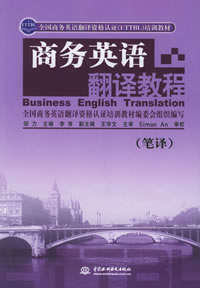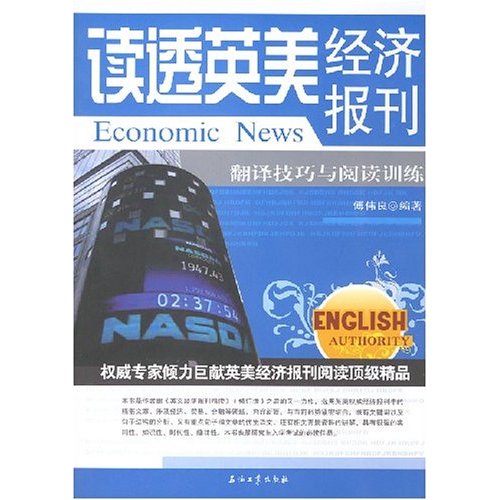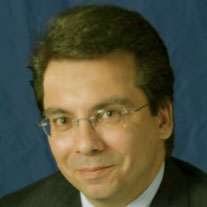Ever-Changing English: A Translator’s Headache
作者:古龙 2009-07-04




语际翻译公司 转载请注明https://www.scientrans.com
∗本栏目部分文章内容来自互联网,部分已经过本站编辑和整理,如有版权事宜请联系Email/MSN jesczhao@hotmail.com
English language is alive and kicking. Problem is: it keeps kicking me!
Aside from the obvious vocabulary changes due to the emergence of an extraordinary array of new objects and processes, whether in daily life (satellite TV in remote parts of China) or highly specialized situations (biotechnology bots of various sorts), English is undergoing changes in usage that I believe are the true headache for a translator. It is usually possible to discover the meaning of an unusual word by finding either glossary definitions or clear context on the billions of Web sites that have been made accessible by search engines, not to mention the age-old method of talking to the author. Usage, on the other hand, is a more slippery matter, so slippery that even when the translator has access to the author of a document, the result of a consultation may not yield a translatable unit like a definition.
What I would like to discuss are some specific instances of usage that I have come across in translating standard operating procedure documents in the pharmaceutical industry that gave me pause. I translate primarily into Spanish, but I will not be proposing any translation solutions here for any particular language. What I am addressing are what I feel to be difficulties in parsing English, a task that is independent of the ultimate target language. Specifically, I am going to address three kinds of usage that I have found to be prevalent and troublesome: conversion of the part of speech, a virgule placed between two words and the ellipsis.
Perhaps the part of speech conversion that is most commented on is verbalization, noun-to-verb conversion, also called “verbing” (an example itself of the phenomenon). We find that things are to be centrifuged, autoclaved, pipetted, chromatographed or filtered. All of these are verbs that originated in nouns describing an instrument or a process, and the only one not usually found as a verb in common dictionaries is autoclave. Verbalizations of this kind seem natural to me, a transformation of the instrument or process into a verb makes language more concise, making it unnecessary to say “process in the centrifuge,” “sterilize in the autoclave,” “dispense with the pipette,” “analyze using chromatography,” or “pass through a filter.”
I centrifuge; you centrifuge; they centrifuge
What does not seem quite as natural is a transformation based on the object of the action, for example with the word “gown.” “The associate shall gown” does not mean that the worker will put on an actual gown, but that the worker will put on the required sanitary clothing and accessories. In the documents I handled, the verb replaced the phrase “don the gown,” in which an archaic verb would have persisted. While disconcerting at first, it was understandable. What stumped me was this instruction: “If there is no data, NA it.” As it turned out, the idea was for the person to write NA (N/A or Not Applicable) in the space provided for writing the data. The object of the action became the name of the action itself, as with the gown.
In any case, these conversions are constantly used in English and may or may not be directly translatable. It may be necessary to determine what the instrument does, what the process consists of, or what must be done to the object, all of which have been masked in the conversion of the part of speech. It could be that rather than dispensing with the pipette there is aspiration with the pipette, for example. The on-line Translation Journal recently published a useful article by translators Hernandez and Cabrera on this topic, available at the Accurapid Web site, https://accurapid.com/journal/31conversion.htm.
Another usage that has become prevalent is placing a virgule, perhaps better known as a slash (/), between two words. The trend may have started with the usage “and/or,” which is almost universally condemned. There is no translation for “and/or” because it is a term of unfathomable meaning. The term “and/or” purports to achieve concision, yet in phrases such as “quality degradation and/or bioburden contamination” just “or” is sufficient. It seems to me that part of the issue in “and/or” phrases is that the relationship between the elements is really of a hierarchical nature in which one element could be an example of another. If there is bioburden contamination, by definition there is quality degradation. What the writer meant was “quality degradation, as for example, by bioburden contamination,” not “quality degradation or bioburden contamination or both,” which is the long version of an “and/or” phrase.
As evidence from another field, I offer this from a World Trade Organization Document:
3. Interpretation of “and/or”
7.81 The interpretations of the parties are also in a sharp contrast with each other regarding the meaning of “and/or” in Article 6.2. As noted above, according to Pakistan, a subject domestic industry consists of producers of (i) like products, or (ii) directly competitive products, or (iii) both like products and directly competitive products. In contrast, the United States argued that Members are permitted to identify a “domestic industry” as an industry producing a product that is: (i) like but not directly competitive; or (ii) unlike but directly competitive; or (iii) both like and directly competitive. -WT/DS192/R, 31 May 2001(01-2567).
Due to space restrictions, I will limit the discussion to the paragraph above extracted from the WTO website on the interpretation of “and/or.” The consequences of the lack of meaning of “and/or” in this case affected an important part of world trade, the cotton trade.
- 评论
- seme:文章内容文章内容文章内容文章内容文章内容文章内容文章内容文章内容文章内容 章内容文章内容文章内容文章内容文章内容
- seme:文章内容文章内容文章内容文章内容文章内容文章内容文章内容文章内容文章内容 章内容文章内容文章内容文章内容文章内容

- 谈翻译观念的嬗变与翻译技能的训练
2009-6-15 15:33:10 - 《高等学校英语专业英语教学大纲》中规定,大学生通过四年的在校学习,“能运用翻译的理论和技巧,将英美报刊上的文章以及文学原著译成汉语,或将我国报刊、杂志上的文章和一般文学作品译成英语……。译文要求忠实...
- 翻译与网络营销
2009-6-11 0:02:31 - Translation and Your International E-Commerce Strategy Most businesses realize that they ...
- 第四届IEEE生物信息与生…
2009-6-30 19:42:01 - 基本信息 主办单位: 四川大学,IEEE生物医学工程协会(EMBS) 承办单位 开始日期 2010/06/18 结束日期 截稿日期 2009/1...
- 第九届全国光电技术学术…
2009-6-30 19:35:58 - 基本信息主办单位: 中国宇航学会光电技术专业委员会承办单位 开始日期 2009/11/01结束日期 截稿日期 2009...
















